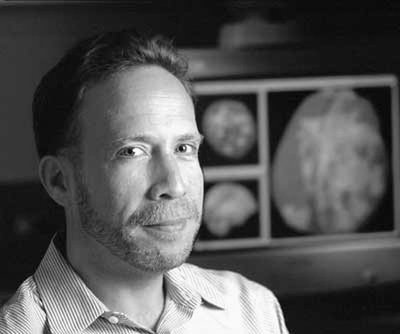November 29, 2001
Speaker to discuss work in behavioral neurogenetics
By Laurie McHale
Center on Human Development and Disability
Behavioral neurogenetics research is a new method of scientific inquiry that focuses on the investigation of neurodevelopmental disorders associated with specific genetic conditions, contributing to an improved understanding of brain disorders in children.
Dr. Allan Reiss, professor of psychiatry and pediatrics at Stanford University School of Medicine and a leader in this new field of research, will discuss “Behavioral Neurogenetics: a New Tool for Advancing Research” at 3:30 p.m. on Thursday, Dec. 6, in room CD-150 at the Center on Human Development and Disability (CHDD). A reception will follow.
His lecture is part of the Theodore D. Tjossem Memorial Lecture Series on Child Development and Developmental Disabilities, sponsored by the CHDD.
“This research method provides a powerful tool for scientific inquiry into human gene-brain-behavior linkages that complements more traditional research approaches,” said Reiss. “In particular, the use of specific genetic conditions as models of common behavioral and cognitive disorders occurring in the general population can reveal insights into neurodevelopmental pathways that might otherwise be obscured or diluted when investigating more heterogeneous, behaviorally defined subject groups.”
Reiss is recognized as a leader in broadening our understanding of the behavioral and psychological development of children with genetic disorders. Through the Stanford Behavioral Neurogenetics Research Center and the Stanford Psychiatry Neuroimaging Lab, both of which he directs, Reiss focuses on a number of disorders, including fragile X syndrome, Turner syndrome, Klinefelter syndrome and other sex chromosome aneuploidies, velo-cardio-facial syndrome, autism, ADHD and dyslexia. His research lab investigates the quantitative and statistical linkages among a number of factors, including specific genetic factors, measures of brain structure and function, markers of neuroendocrine function, environmental variables, and behavior.
“Dr. Reiss’s work is at the forefront of understanding the genetic bases of brain-behavior organization,” said Dr. Gene Sackett, UW professor of psychology and an associate director of the CHDD.
A graduate of the George Washington University School of Medicine, Reiss completed residencies at the University of Colorado, Children’s Hospital National Medical Center, Stanford and the Palo Alto VA Hospital. He joined the faculty of Johns Hopkins University and the medical staff of the Kennedy Krieger Institute, and later was named vice president of the Psychiatry and Behavioral Neurogenetics Division at Kennedy Krieger. He moved to Stanford in 1997, where he is chief of the Division of Child and Adolescent Psychiatry and Child Development.
Sackett organized the lecture series in 1992 in honor of Dr. Ted Tjossem, a psychologist and former UW faculty member who helped lay the foundation for the creation of the CHDD in the 1960s. Tjossem went on to direct the Mental Retardation and Developmental Disabilities Branch of the National Institute of Child Health and Human Development.



